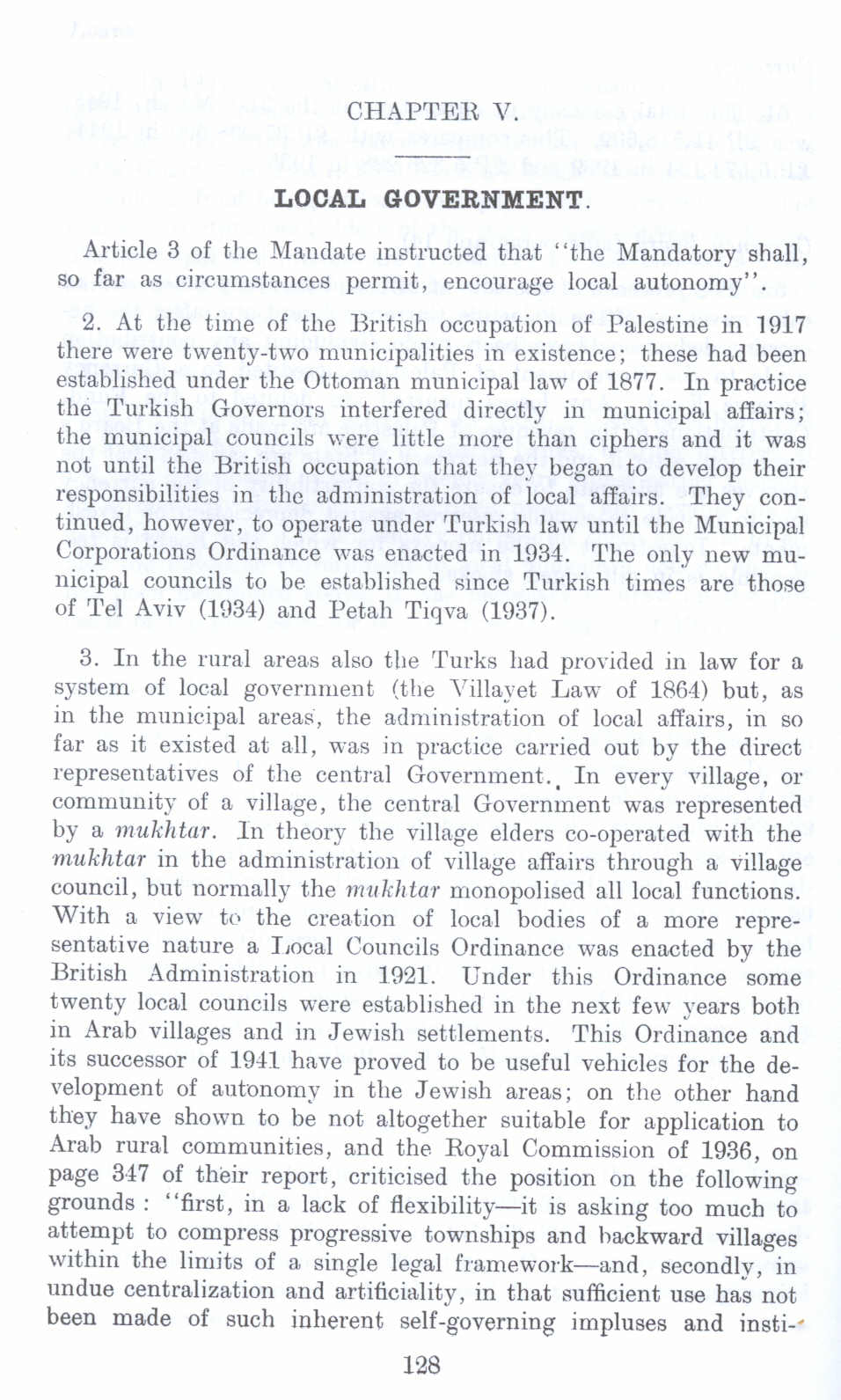| Prev | Next |  |
| Prev | Next |
| PalestineRemembered | About Us | Oral History | العربية | |
| Pictures | Zionist FAQs | Haavara | Maps | |
| Search |
| Camps |
| Districts |
| Acre |
| Baysan |
| Beersheba |
| Bethlehem |
| Gaza |
| Haifa |
| Hebron |
| Jaffa |
| Jericho |
| Jerusalem |
| Jinin |
| Nablus |
| Nazareth |
| Ramallah |
| al-Ramla |
| Safad |
| Tiberias |
| Tulkarm |
| Donate |
| Contact |
| Profile |
| Videos |
Local Government in Palestine. British Mandate: A Survey of Palestine: Volume I - Page 128. Chapter V |
Disclaimer
The above documents, article, interviews, movies, podcasts, or stories reflects solely the research and opinions of its authors. PalestineRemembered.com makes its best effort to validate its contents.


Post Your Comment
*It should be NOTED that your email address won't be shared, and all communications between members will be routed via the website's mail server.
LOCAL GOVERNMENT.
Article 3 of the Mandate instructed that "the Mandatory shall, so far as circumstances permit, encourage local autonomy".
2. At the time of the British occupation of Palestine in 1917 there were twenty-two municipalities in existence; these had been established under the Ottoman municipal law of 1877. In practice the Turkish Governors interfered directly in municipal affairs; the municipal councils were little more than ciphers and it was not until the British occupation that they began to develop their responsibilities in the administration of local affairs. They continued, however, to operate under Turkish law until the Municipal Corporations Ordinance was enacted in 1934. The only new municipal councils to be established since Turkish times are those of Tel Aviv (1934) and Petah Tiqva (1937).
3. In the rural areas also the Turks had provided in law for a system of local government (the Villayet Law of 1864) but, as in the municipal areas, the administration of local affairs, in so far as it existed at all, was in practice carried out by the direct representatives of the central Government., In every village, or community of a village, the central Government was represented by a mukhtar, In theory the village elders co-operated with the mukhtar in the administration of village affairs through a village council, but normally the mukhiar monopolised all local functions. With a view to the creation of local bodies of a more representative nature a Local Councils Ordinance was enacted by the British Administration in 1921. Under this Ordinance some twenty local councils were established in the next few years both in Arab villages and in Jewish settlements. This Ordinance and its successor of 1911 have proved to be useful vehicles for the development of autonomy in the Jewish areas; on the other hand they have shown to be not altogether suitable for application to Arab rural communities, and the Royal Commission of 1936, on page 3-:17 of their report, criticised the position on the following grounds; "first, in a Jack of flexibility-it is asking too much to attempt to compress progressive townships and backward villages within the limits of a single legal framework-and, secondly, in undue centralization and artificiality, in that sufficient use has not been made of such inherent self-governing impulses and institutions
Page 128